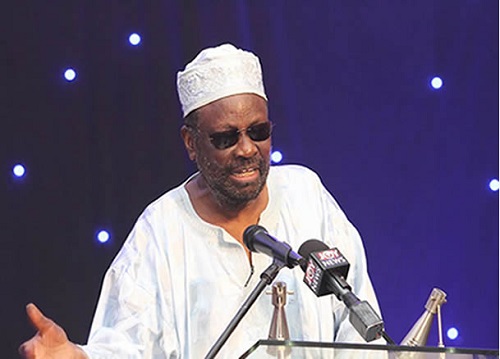The late President of Tanzania, Mr. John Magufuli, did Africa no favours by the way he reacted to the outbreak of Covid-19 in his country.
Before he died on March 17, 2021, he had expressed serious doubts about Covid-19 and its possible cures. His attitude, which was reflected in the country’s policy over Covid, is feared to have put the lives of many of his country’s 51 million people in danger of losing their lives.
Moreover, in a continent often mocked for its production of eccentric leaders who were unfairly adopted as stereotypical of Africa as a whole, by the rest of the world (with Idi Amin Dada of Uganda and Muammar Gaddafi standing out as examples), Magufuli brought a new dimension to quirky leadership: religious fanaticism.
A devout Catholic, he described Covid-19 as “a devil [that] cannot survive in the body of Christ…It will burn instantly”. He made this declaration at the altar of a Catholic chapel in the capital, Dodoma. He followed that up by refusing to order the normal “knock-down” adopted by many other countries, when the presence of the pandemic emerged in Tanzania. Instead, he urged the populace to “get into the churches and mosques to pray.”
Magufuli also advocated so-called “traditional” treatments for Covid, such as “steam inhalation”, in the fight against the disease. In June 2020, he declared the country “Covid-19 free”, and, along with other top government officials, mocked the efficacy of wearing masks.
He also expressed doubts over whether testing for the presence of the disease actually worked. He went as far as ridiculing the practice of testing for the virus by sending goat meat samples and pawpaw fruits to be tested for Covid! When some produced positive results, he used that to ridicule the entire idea of testing.
Such actions by Magufuli caused great surprise, for he had been a former chemistry teacher, with a degree from the University of Dar-es-Salaam, before entering politics. While he was free to believe what he liked, turning his beliefs into state policy alarmed many in the country.
Unfortunately for him, he had lost popularity just before his death, and the mystery maintained by the Tanzanian Government surrounding his illness and death, will be taken by many in his country and elsewhere as quite well-deserved. (The Tanzanian Government claims that he died from “heart disease”. Yet he had “disappeared from public life a fortnight or so before his death, with some claiming he had been taken to India and others that he was being cared for in Kenya, where he had been put on a ventilator.)
These factors will lose Magufuli sympathy and ultimately create controversy in Tanzania over whether religion should be allowed to play an important role in public life. In a country where religion is largely dominated by Christianity and Islam, many fear that a renewed debate over religion and politics could be rancorous and endanger national unity. That would be ironical, for the country’s leader who led it to independence, “Mwalimu” Julius Nyerere, and who was venerated by Magufuli, was an enlightened man who did not allow religion to become a factor in politics.
Another irony about the situation is that when Magufuli first became leader of his country in 2015, he achieved enormous popularity by attacking corruption. He sacked 10,000 teachers who were found to possess fraudulent certificates, and took a hammer to public-financed projects that did not appear to merit the money spent on them. But he was criticised for opposing the return to school of female students who became pregnant. He used some vividly misogynistic terms to express his unwillingness to allow them to go back to school.
But in recent months, he had been accused of clamping down on dissent. Opposition leaders complained of being impeded in their political work by agents of the state, and some went into exile.
Meanwhile, Mugufuli’s Vice President, Samia Suluhu Hassan, has been sworn first female President. In an address, President Hassan said Magufuli’s body would be moved to several locations around the country over the next few days for private and public farewell events.
He would then be laid to rest in his home town, Chato, on March 25, 2021, she said.
Described as a “consensus-builder,” Hassan will be the country’s first president born in Zanzibar, the archipelago that forms part of the union of the Republic of Tanzania. Her leadership style is seen as a potential contrast from that of the “brash” Magufuli. She will be faced with the task of healing a country that was polarised during the Magufuli years, and building her own political base to govern effectively.
She will also have to decide whether to procure Covid-19 vaccines for the country, in contrast to Magufuli’s reluctance to procure any.
Last month, the US Embassy in Dar-es-Salaam warned that Covid-19 cases had been “surging” in the country since January.
Samia Suluhu Hassan is the sixth President of Tanzania. She was born on January 27, 1960, in the Sultanate of Zanzibar. Her
spouse, whom she married in 1978, is called Hafidh Ameir. She was educated at the University of Manchester, in England.
By Cameron Duodu


